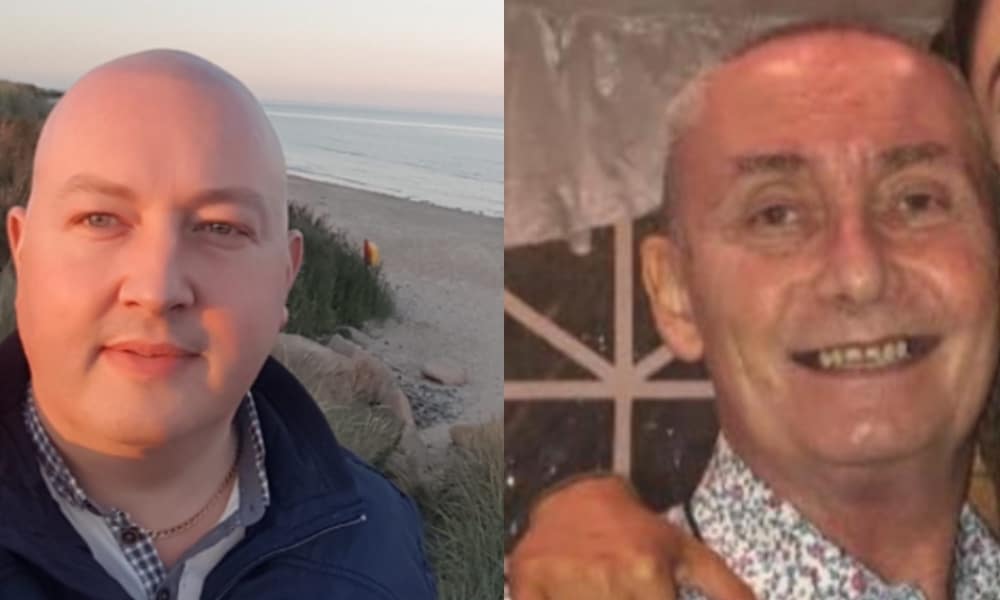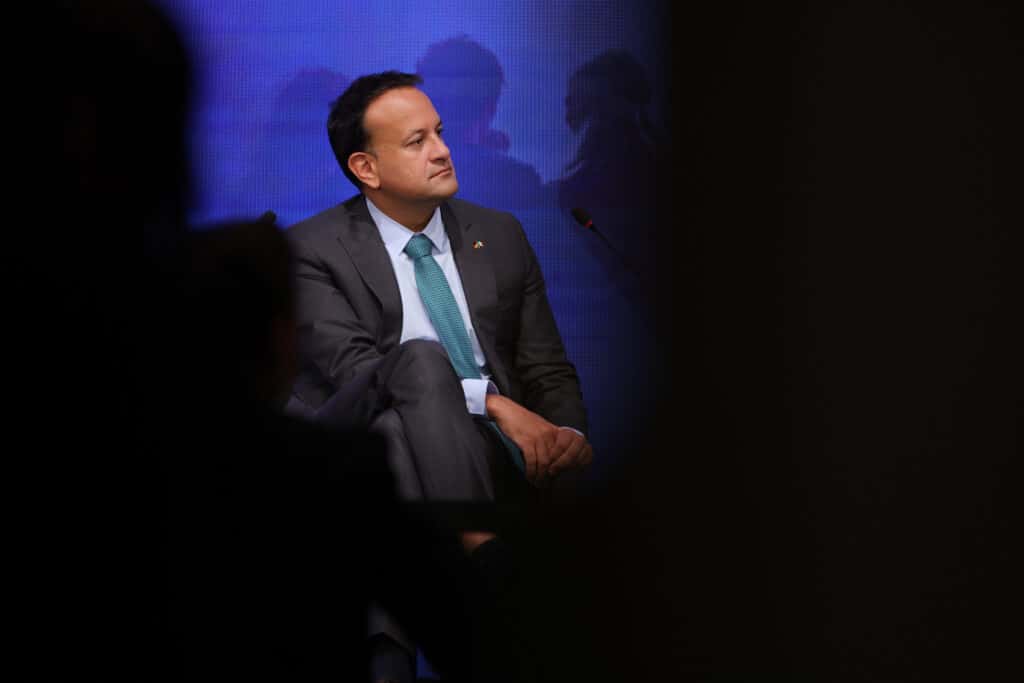Brutal attack left trans man with broken ribs just one week after coming out
A trans man feels too scared to leave his home after four of his ribs were broken in an attack that still haunts him a year on.
Callum Kenney, a 22-year-old Dublin City University graduate, told PinkNews a thug brutally set upon him in 2021, only a week after he came out, leaving him unable to wear a binder and with costly surgery as his only option.
It was an attack that captures so many of the struggles LGBT+ people face in Ireland, from a police force seemingly uninterested in their plight to a threadbare trans healthcare service.
While walking through an alleyway in his hometown of Dundalk in County Louth last March, Kenney heard someone hurl slurs and his deadname at him right before he was struck.
“I don’t even remember it being painful being hit. I didn’t even register that I was hit. I struggled to get away and ran,” he said. “There was a lot of pain and I was crying.”
The incident took place just a week after Kenney published an article about how the COVID pandemic, which all but froze life in Ireland for months, gave him a chance to “come to terms” with his gender identity.
“I’m still proud of it to this day, even though I do think it, in part, led to the attack,” Kenney said.
Kenney was hesitant to report the incident to the An Garda Síochána, Ireland‘s national police force. To Kenney, the Gardaí are apathetic to anti-LGBT+ violence.
“I had friends that have been attacked like me and they tried to report it to the Gardaí only for their reports to go missing or be turned away with a laugh,” he said.
“I just felt like: ‘What’s the point?’ I didn’t want to go through that to get nothing.
“We’re all being told to trust the people that are supposed to protect us, but they’re not doing that at all. They don’t seem to care,” Kenney added.
For nearly a week, Ireland has been grieving. Aidan Moffitt, a 41-year-old local auctioneer, and Michael Snee, a 58-year-old retired healthcare worker,were both found dead earlier this month in Sligo.

The killings of two gay men have appalled politicians and shuddered fear throughout the LGBT+ community, Kenney included, who recalled an unsettling familiarity when reading about their deaths.
“I sat down and sobbed. I didn’t know these people, but there is a sense of community,” he said, “we’ve all experienced very similar things. I was upset to learn that what happened to me can happen again and it’s continuing to happen.”
Kenney said it feels as if Ireland’s LGBT+ community are almost “terrified to exist” as a harrowing realisation dawned on him: “They’re far from the last.”
“I went out for a walk last night but I came back after five minutes,” Kenney explained, “because I no longer feel safe leaving the house.
“If someone walks behind me in a particular way, I jump and have to wait for them to walk past me.”
A twin stream of sorrow and rage has poured through Dublin as well this month as a spree of anti-LGBT+ hate crimes has taken place.
According to the Gardaí, at least 85 hate crimes have taken place in the first two months of 2022. No records exist for such crimes motivated by hatred for a person’s sexuality or gender identity, however.
“These devastating crimes bring to the fore the need for comprehensive hate crime legislation,” Paula Fagan, CEO of LGBT Ireland, told PinkNews.
“These crimes are on the extreme end of a spectrum of violence experienced by the LGBTI+ community,” she said, adding that many victims do not report hate crimes to the Gardaí as “homophobia and transphobia remain normalised”.
Trans man brutally beaten left with no other choice but to raise money for surgery
Two months and a move to the capital later, Kenney reckoned with the aftermath of his attack – four of his ribs had shattered, leaving him with a bruise that crawled across his torso.
Yet it also meant he could not wear his binder, which can help reduce the appearance of a person’s chest. For some trans people, wearing one can greatly reduce their sense of gender dysphoria as well as anxiety and depression, researchers found.
“Even a year on, I’m going to a physio to relieve the pain but I still can’t wear a binder, which is why getting top surgery is really important sooner rather than later,” he said.
There was no other option than to go private, Kenney explained, given that seeking subsidised trans healthcare through the Health Service Executive is a tall order.

One major roadblock set by the Irish National Gender Service is that a patients’ guardians must be present during a consultation, even when the patient is an adult. This policy, Kenney said, comes on top of the five-year-long wait for appointments.
Those struggling with this “waiting game” sometimes seek healthcare in Britain instead, which isn’t exactly any better, Kenney said.
To afford going private, Kenney has worked two jobs for months – in a café in the daytime and moonlighting as a cleaner. He had to quit both because of his failing health and now works in an office.
Kenney’s friend, Tadgh Jenkins, launched a GoFundMe earlier this month to help cover the medical costs. It has so far raised €4,200.
“Tánaiste Leo Varadkar said Ireland is a ‘beacon of liberty in Europe‘, which is hilarious because we are one of the worst countries for trans healthcare,” Kenney said.
“It’s all empty words, they’re often not backed up by action – we are being left to die. It’s almost as if they’re putting every barrier possible to stop us from getting the healthcare we need.”
“By the time I get contacted,” he added, “I’ll turn around and say: ‘You’re a bit late.’”